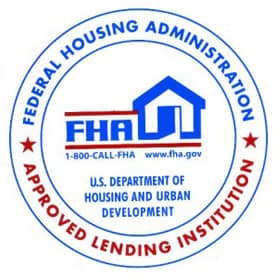BLOG
A new rule by the Federal Housing Administration that went into effect Oct. 15th is making it easier for first-time condo buyers, even those with less than perfect credit scores, to get approved for FHA-backed mortgages.
The new rule allows individual condominium units to be eligible for FHA mortgage insurance even if the condominium development has not been FHA approved. It introduces a single-unit approval process, which will make it much easier for many condominium residences throughout the country to become eligible for FHA-insured financing.
The rule changes also extend the recertification requirement for approved condominium communities from two to three years, and it allows more mixed-use projects to be eligible for FHA-insured mortgages.  Condo developments will be eligible for FHA financing if their commercial/non-residential space does not exceed 35 percent of the total floor area (previously the maximum was 25 percent).
Condo developments will be eligible for FHA financing if their commercial/non-residential space does not exceed 35 percent of the total floor area (previously the maximum was 25 percent).
The FHA provides mortgage insurance on loans made by FHA-approved lenders, which benefit from the added protection against the risk of default. According to the U.S. Department of Housing and Urban Development, the rule change is expected to make 20,000 to 60,000 condo units per year eligible for the FHA-insured financing.
Prior to this change, if a development had not been pre-approved for FHA-backed financing, prospective condominium purchasers could only obtain conventional mortgages. According to the FHA, only 6.5 percent of the country’s condo developments are currently approved to participate, so the new rule will substantially open the potential pool for condominium loans under the program.
However, under the new rule, the FHA will only approve a limited number of units in any condominium community that has not been FHA certified. For developments with 10 or more units, no more than 10 percent of the residences can be FHA-insured.
Condominium developments seeking FHA approval cannot have over 10 percent of the residences owned by one investor or entity, and no more than 15 percent of the unit owners can be in arrears to the association. In addition, a minimum of 50 percent of the units must be owner occupied.
Securing FHA approval for a condominium community can enhance the sales of its units and, ultimately, the property values of all its residences. The approval process can be a bit complex, so condominium associations and their property managers should consult with highly qualified and experienced association legal counsel for their guidance and expertise.
Our firm’s other community association attorneys and I write regularly about important issues for associations in this blog, and we encourage association members, directors and property managers to enter their email address in the subscription box on the right to automatically receive all of our future articles.

